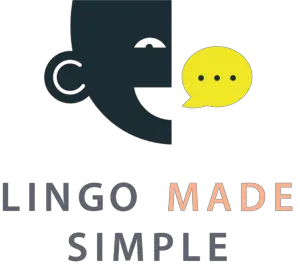You can find three primary verb tenses in academic, professional, and casual writing in the English language. They are the past, present, and future.
Once you have decided on the correct option, each tense can take on four primary aspects: simple, perfect, progressive, and perfect continuous.
The progressive aspect uses the word “to” for forming verbs, while the perfect continuous focuses on “to be.”
Most people use past simple, present simple, and present perfect tenses when writing or speaking with others. What makes things a little confusing for the language is when the past, present, or future are mixed with the other tenses to create an inappropriate observation.
Difference Between “It Was My Birthday Today” and “Today Was My Birthday”
The only difference between “It was my birthday today” and “Today was my birthday” is the pronoun placement. Using the word “it” makes things a bit clunky in the description for the reader. Both statements are also grammatically incorrect, as “was” should be “is” since it is present tense.
The only time it works to begin a sentence with a pronoun like “it” occurs when the statement contains an infinitive. That means you could say, “It is my birthday today.”
That statement clears up the confusion over the pronoun. Readers or listeners can determine that “it” refers to the time during the year, while the rest of the sentence describes the events taking place on this occasion.
The reason you would use “is” instead of “was” is due to the present tense structure of the sentence. When “today” is used as the descriptor, it indicates that everything is still happening right now.
Today is not an event in the past or the future. Even if events happened in the morning and it is the afternoon, you’re still referencing one moment of time that occurs right now. You’ve lumped everything into that single catch-all term.
That’s why you would need to say, “Yesterday was my birthday” or “It was my birthday yesterday” to express a past-tense thought appropriately.
If you noted that your birthday is happening the next day, you would use future tense instead. You would say, “Tomorrow is my birthday” or “My birthday is tomorrow.”
Note how the future tense still uses the present version of the verb. That’s because the past cannot happen in the present or the future.
How to Determine What Tense to Use in English
Since there are so many different tense options for reading or speaking the English language, it helps to know the basic functions of each one and their aspects.
Each tense locates an event in time, while aspects communicate relationships or the duration between events.
The table below outlines each tense and function with an example for added clarity.
| TENSE: | FUNCTION: | EXAMPLE: |
| Present Simple | Used for generalizations, truths, and facts not impacted by time’s passage. | He writes plenty of blog posts for his education. |
| Past Simple | Used for events that happened in the past. | He wrote lots of blog posts for his schoolwork last week. |
| Future Simple | Used for events that will happen in the future. | He will write lots of blog posts for his schoolwork next week. |
| Present Perfect | Used for describing events that started in the past and continue; emphasizes the relevance of the past in the present. | He has written blog posts for his classes, but he still has a few left to complete. |
| Past Perfect | Used to describe events that happened before other occurrences in the past. | He had written several blog posts for his classes before he switched to a different school. |
| Future Perfect | Used for describing events that will be completed between the present moment and a specific point in time in the future. | He will have written several blog posts for his classes before the semester’s end. |
| Present Continuous | Used for describing the ongoing, and often temporary, actions that happen right now. | He is writing a blog post for his class. |
| Past Continuous | Used for describing an ongoing past event, often in relation to other circumstances. | He was writing a blog post for his class when his keyboard broke. |
| Future Continuous | Used for describing future events that are likely to continue over some time. | He will be writing many blog posts for his class over the next semester. |
| Present Perfect Continuous | Used to describe an event that started in the past, continues into the present, and emphasizes its current relevance. | He has been writing blog posts all night, and now he needs to get some rest. |
| Past Perfect Continuous | Used when describing events that started, continued, and ended in the past; emphasizes the relevance to past moments. | He had been writing blog posts all night, and now he needed some extra sleep. |
| Future Perfect Continuous | Used for describing events that keep going until a future point with an emphasis on the expected duration. | He will have been writing blog posts for three months by the time he hands in the assignment. |
How to Decide on What Tense to Use
Most people use the present simple tense when speaking or writing. This option is helpful because it maintains an active voice while clearly describing activities or events without confusion.
When you say, “Today is my birthday,” you’re using the present simple tense. It would be the same as if you made the observation, “The Statue of Liberty is in New York City.”
The statement contains a relevant fact that speaks to the present moment.
You could also make generalizations of theories based on expressed facts while using the present simple tense.
“The average salary rate differs significantly when comparing white male executives with Hispanic female leaders.”
When you offer an explanation of an idea, theory, or term, it is also in the present tense.
“Time travel theory refers to the process of combining gravity and speed to fold the framework of the known universe.”
Once you can keep your tenses correct, you’ll know when to say “is” or “was” for a statement involving anything – including your birthday!


